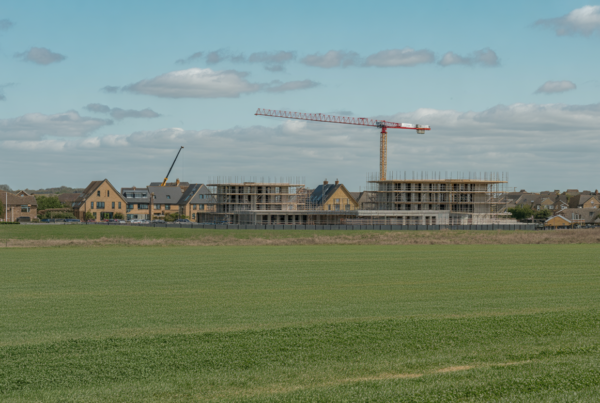The construction industry has seen more insolvencies in the last five years than other sector across the UK.
Property developers who believe the likelihood of their Tier 1 and Tier 2 contracting partners falling into financial difficulty is relatively low would be best served to remember that we all felt like that about Carillion too.
In a hardening and inflation fuelled market, it’s often main contractors who feel the pinch first. Construction News reported that nearly twenty-four construction-related businesses went into administration in March 2022- This included specialist, Twenty 1 Construction, who turned over around £68m in most recent published accounts for 2020.
In addition to our checklist of requirements when securing structural warranties, developers have sound reasoning to want to retain control of the process when it comes to arranging their new build warranty insurance rather than delegating the task to the main contractor.
Control:
A developer should always want to retain control of the process when it comes to a development’s insurance programme, especially the latent-defects policy. Whether this is to protect your position in case of a falling out with the contractor or the unthinkable happens and they are not able to fulfill their obligations, being in possession of the paperwork and contacts will leave you with one less problem to solve!
If you, the developer, arrange the insurance and there is a change of contractor, this can be reflected in the insurance contract for little to no change in the premium. Conversely, if the contractor arranges the cover and falls into financial difficulty subsequently, you, the developer, will have to take out another policy at your expense.
Other considerations that cascade down from control include:
Defects Period:
While developers may have to resign themselves to the fact that the associated costs of placing a new policy will ultimately reside with them, the more uncomfortable consideration comes when you start to think about the defect period. When a new main contractor is engaged on-site, and they are unwilling to take the liability for works already carried out, you’ve crossed the rubicon, and the only viable option for taking on that liability sits with you, the developer.
Cost:
Regardless of whoever arranges the cover, the developer ultimately pays for it. There are often situations wherein the insurance will be more suited to the contractor, who isn’t the beneficiary of the policy.
While those differences may not be vast on the face of it, we find that when the big things happen on-site, the little things (like new build warranty insurance) really matter!
Sum Insured:
Simple things that are vital (a non-negotiable) to you and your funders, like the total sum insured, are more of a malleable point for the main contractor because they know that a reduction in the sum insured will result in a reduction in the cost of insurance – even if this is the gravest of false economies.
By tendering the insurance cost yourself, you ensure that the actual insurance cost and its programme are well understood. It also allows you to ask for a bid discount to reflect that this insurance will be procured and provided by the employer (you). You will also find that you’ll get more favourable payment terms directly.
Insurer Selection:
We wanted to offer developers a whole of market option so they know they’re getting terms from all the suitable A-rated providers. Suppose the main contractor holds the keys to the procurement process. You may only get a fraction of what’s available and not receive value for money or, more importantly, the most appropriate coverage.
New build warranty insurance :
The team at J3 Advisory has significant experience in arranging new build warranties, including a £50m mixed-use Sheffield residential development and 17m residential scheme in East London. At J3 Advisory, we believe in partnering property professionals with the right insurers for their projects. So, while we don’t always go to every corner of the market, our experience, relationship, and networks ensure we have access to the right ones, ultimately saving our clients time and money.
When your next project does come into focus, we would be happy to talk through the scheme and offer our pragmatic and unconflicted advice on the right new build warranty insurance policy for you.





